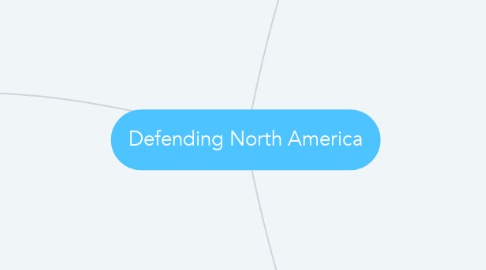
1. The Scrapping of the Avro Arrow
1.1. For
1.1.1. The technology of the Arrow was soon to be outdated. The Space Race had developed new technology’s. The US had missiles outfitted with nuclear warheads and was the way of the future.
1.1.2. The Arrow was in it’s 6th prototype. The costs were soaring and the final engine hadn’t been tested.
1.1.3. There was no interest from the USA for this plane and very little interest from other foreign countries.
1.1.4. A.V.Row Canada was a disorganised company. They were unable to control the cost of developing the plane and keep the Canadian government onboard with it’s commitment to purchase. It was estimated that the plane was costing 6 times more than it was worth to produce. Canada eventually purchased used planes from the US military.
1.2. Against
1.2.1. At the time this was the best plane ever built. Advances in technology combined with the brilliant Canadian engineers produced a jet plane that was leading the industry.
1.2.2. Canadians were proud to say that it was deigned and built in Canada. The Aerospace industry in Canada was competing with the world.
1.2.3. The addition of the CF 105 Arrow would have strengthened the Canadian Armed Forces. Giving us a bigger presence globally.
1.2.4. The Arrow would have given Canada a jet fighter that could be armed with a nuclear warhead.
2. Canada’s Acceptance of Nuclear Weapons in 1963
2.1. For
2.1.1. For
2.1.2. Protect Canada from the advancement of Communism.
2.1.3. Provide support to NORAD and strengthen the position of defence from nuclear attack on North America. In 1963 when the Liberal party won a minority government. They agreed to support the US and accepted nuclear weapons.
2.1.4. Canada was worried if they didn’t accept the nuclear program there would be damage to the trade relationship and investment in Canada would stop.
2.1.5. Strengthen the Canadian Armed Forces.
2.2. Against
2.2.1. Canadians fear nulear weapons. There was always the fear of global suicide.
2.2.2. It was hypocritical to accept nuclear weapons when at the same time Canada was supporting the UN in their fight to disarm countries with nuclear weapons.
2.2.3. To costly to invest in the nuclear program. The people of Canada would have to pay the bill to support the military’s spending.
2.2.4. Canada as a nation was against Nuclear war. The fear of the unknown kept Canada against the advancement of nuclear programs
3. Canada’s Role in the Cuban Missile Crisis
3.1. For
3.1.1. Canadian Government felt pressure from other NATO countries to support the US. These countries had supported the blockade and would support the US if they were attacked.
3.1.2. Canada’s support came after the crisis had climaxed. A poll later showed that Minister Diefenbaker’s ideals did not reflect those of the country. Nearly 80 % of Canadians polled supported the USA.
3.1.3. Canadians supported the fight against communism. Supporting the USA was a way to demonstrate its power and commitment to eliminate communism.
3.1.4. Canadians were worried about the USA taking control of Canada. This was more so in British Columbia. Joining the State of Alaska to Washington State was always a threat.
3.2. Against
3.2.1. Minister Diefenbaker did not agree with the US policy on Cuba. He wanted to wait until the UN could put feet on the ground and see for themselves. He did not believe the pictures from the US.
3.2.2. Minister Diefenbaker did not want to engage in a major USA led conflict.
3.2.3. Canada’s government refused to place NORAD forces on alert. Defcon 3 was not achieved and the US was denied the right to enter Canada with nuclear weapons.
3.2.4. Relations between Minister Diefenbaker and President Kennedy were uneasy. Diefenbaker felt that President Kennedy was arrogant. A paper “The Rostow Memo” was found outlining the questions that Kennedy would ask Diefenbaker in their meeting. Minister Diefenbaker felt the questions were written in a way to control him and the outcome of the meeting. This fear of controlling and dominating angered him.

